Jade Dragon, on the second floor of the Crown Towers Hotel within the City of Dreams casino complex, opened in August 2012. It was awarded a Michelin star in 2014 and a second star in 2016. The head chef is Tam Kwok Fung, who prior to this was head chef of Michelin-starred Ying in Macau, and also worked for nine years at the Peninsula hotel in Bangkok. He won the gold medal at the World Championship of Chinese Cooking competition in 2005.
The main dining room has a vaulting ceiling and very widely spaced tables, seating up to sixty diners. There are no less than eleven additional private dining rooms, this form of eating out being very popular with Chinese diners. Up to 150 more guests can be accommodated in these rooms, the largest of them seating twenty people.
The wine list is shared with the other restaurants within the City of Dreams, and has around 750 different labels, ranging widely in price. The cheapest was Pacherenc du Vic Bilh Sec Château Bouscassé "Les Jardins" Alain Brumont 2009 at MOP 280 (£27 compared to a retail price of around £16) whilst at the other end of the scale was right up to the (extremely) limited edition Penfolds Ampule 2004 at MOP 2.5 million (£241,000), about double its notional market price in the UK. In reality this wine is a bit tricky to find as only twelve bottles were ever made. More conventional bottles included Donhoff Riesling Kreuznacher Krotenpful 2012 at MOP 580 (£56) compared to a retail price of about £15, Daniel Etienne-Defaix “Les Lys” Chablis 2003 at MOP 980 (£95) for a bottle with a shop price of around £30, and Vega Sicilia Alion 2012 at MOP 1,250 (£121) for a wine that will set you back £52 in a shop. Extensive vertical selections of prestige wine were offered, with Mouton Rothschild going back to the legendary 1945 vintage. There were some pricing oddities buried away in the list. The lovely Antinori Tignanello 2001 was a hefty MOP 3,800 (£367) compared to a UK retail price of £106, yet the 1997 vintage of the same wine was just a fraction more at MOP 3,980 (£385) whereas this vintage costs £149 in a shop: as can be seen, there was quite a difference in relative mark-up between these wines. Consequently, as so often with restaurant wine lists, some careful research of the list in advance will pay dividends.
The meal today began with a nibble of fried shrimp with a miniature yuzu salad. The shrimp was sweet and carefully cooked, the citrus of the yuzu a good complement to the prawn (16/20). A trio of dim sum came next. Har gau dumpling was a variant on the classic prawn dumpling, the filling having a little lobster in addition to the shrimp, the dumpling coloured green by spinach juice and garlic chive (a species of onion native to Shanxi province). Xiao long bao had Kegani crab (from Hokkaido) rather than pork providing the characteristic liquid centre (made by using aspic, which melts inside the bun when heated) and was dipped in vinegar to give a sourness to balance the sweetness of the crab. The trio was completed by a red rice crispy prawn roll. These were very classy dim sum, the crab having excellent flavour, the dumpling wrappers thin and delicate (17/20).
Next was hot and sour soup, but again this was a class above what you find in your local Chinese restaurant. The same imported Hokkaido crab was used here rather than pork, and the balance of the vinegar and the level of spicing was spot on: it is hard to make a soup really impressive, but this one was, with great depth of flavour (17/20). This was followed by barbecue pork alongside crispy suckling pig with a little caviar, and finally a confit cherry tomato. The barbecue pork used Iberico pluma (a cut by the shoulder) and had excellent texture, while the pork skin was crisp and light. A marinade of Japanese plum wine added a little sweetness, with the tomato balancing that nicely (16/20).
Blue lobster was pot roasted with ginger and spring onion. The shellfish meat had been carefully extracted from the shell and was very tender, clearly fresh (live lobsters could be observed in a tank in the restaurant). This was a simple but very accurately cooked dish (16/20). This was followed by poached amaranthus leaves with fried pieces of garoupa in a fish broth, garnished with wolfberries (aka goji berries). The fish was quite crisp but the leaves inevitably tasted a touch soggy within the broth (just about 15/20). The final savoury dish was fried rice with roast goose, lobster, prawn and conpoy (dried scallop). The rice had been steamed in lemongrass prior to frying and was pleasingly aromatic, the assorted toppings all carefully cooked (16/20).
A pre-dessert of coconut milk sorbet with pineapple was very refreshing and had good texture (16/20). This was followed by creme brûlée of Chinese almonds with bird nest and honey. This was technically well made, the top crisp and delicate, the almond flavour coming through well, though I am not really sure what the bird nest added (15/20).
Service was excellent throughout, the staff attentive. The bill came to HKD 979 (£96) with just jasmine tea to drink. This did not seem excessive given the high-grade ingredients and skill level that was evident here. Jade Dragon offers some generally impressive Cantonese food in a very smart setting.






















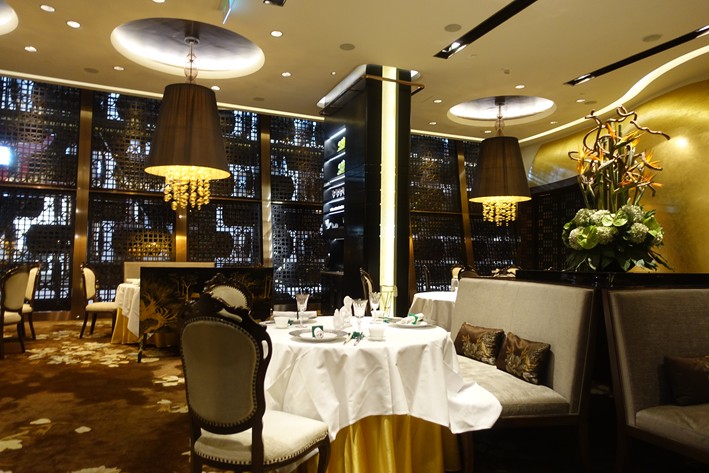

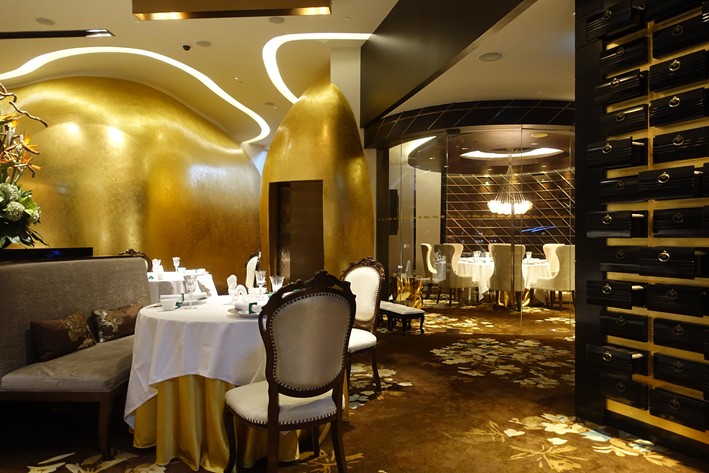
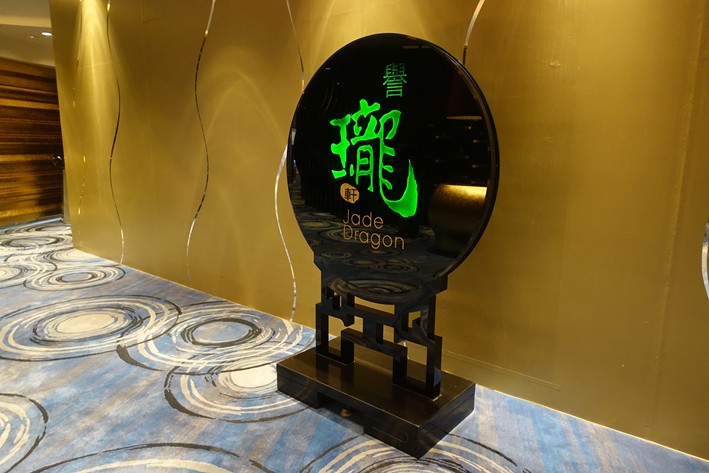
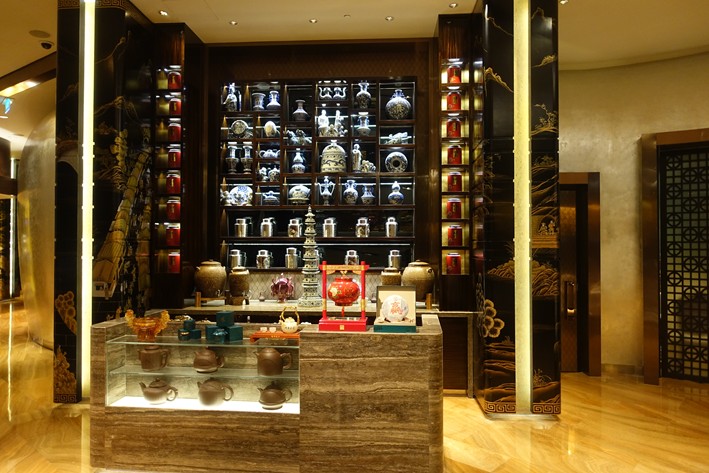
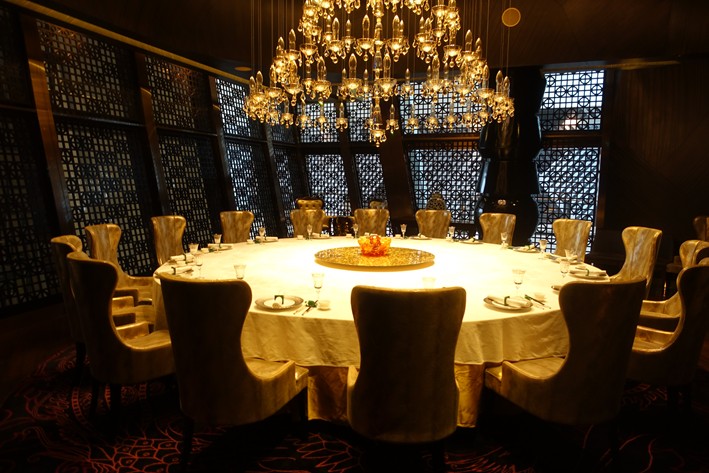
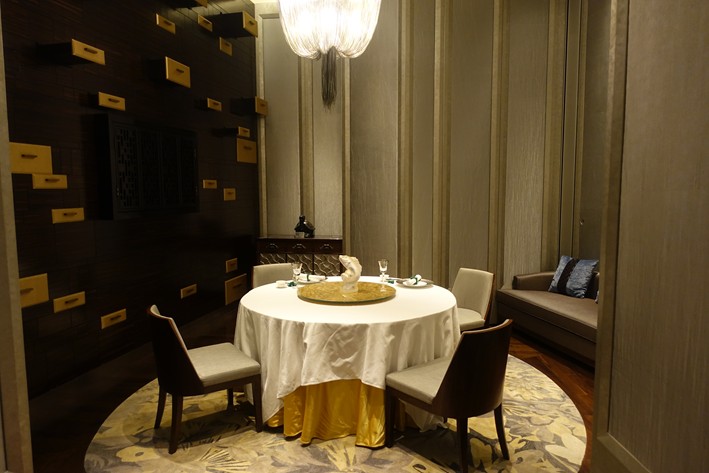
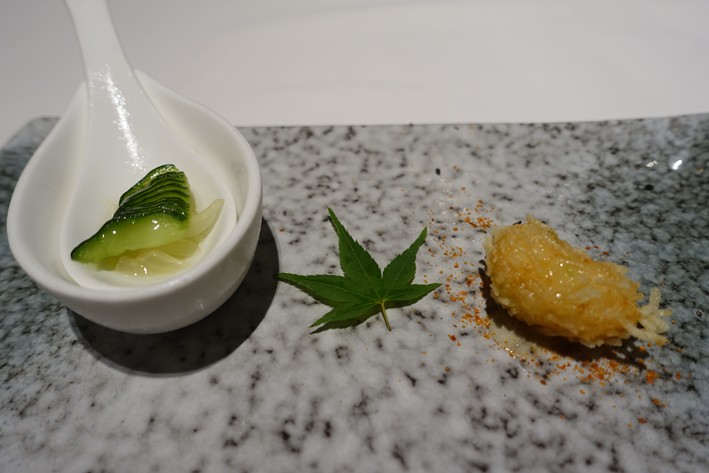
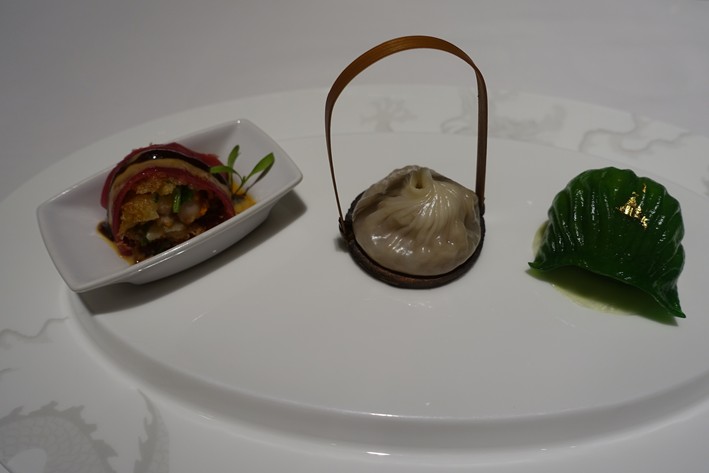
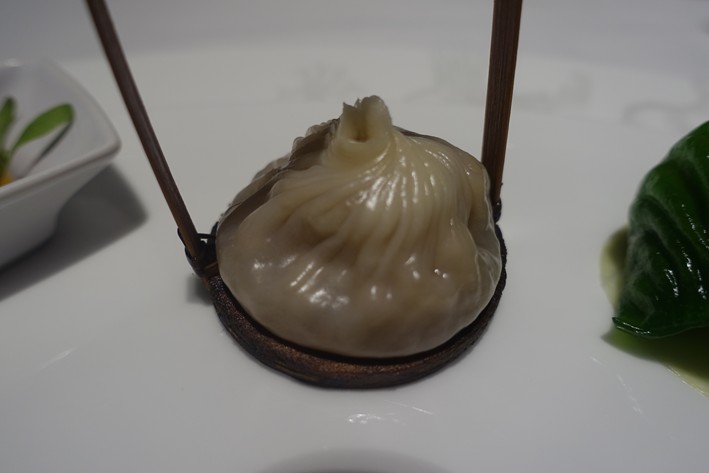
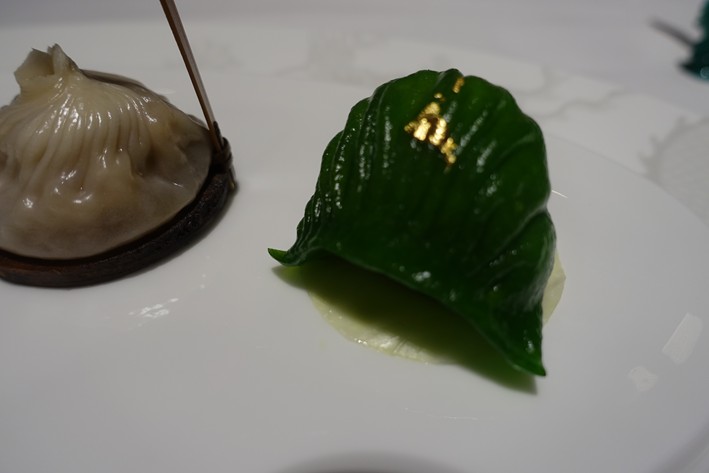
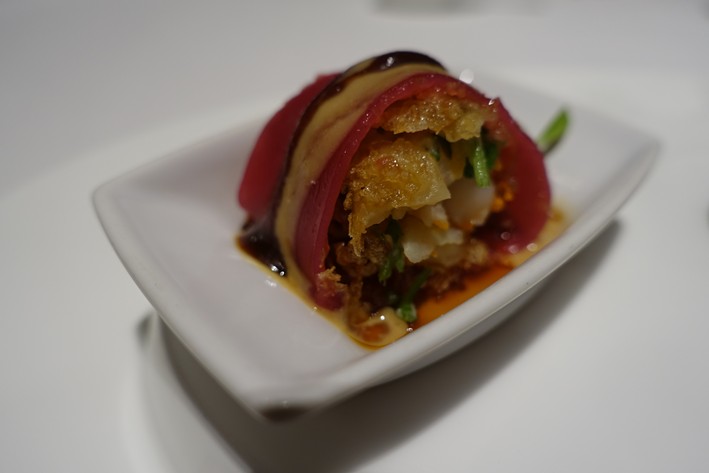
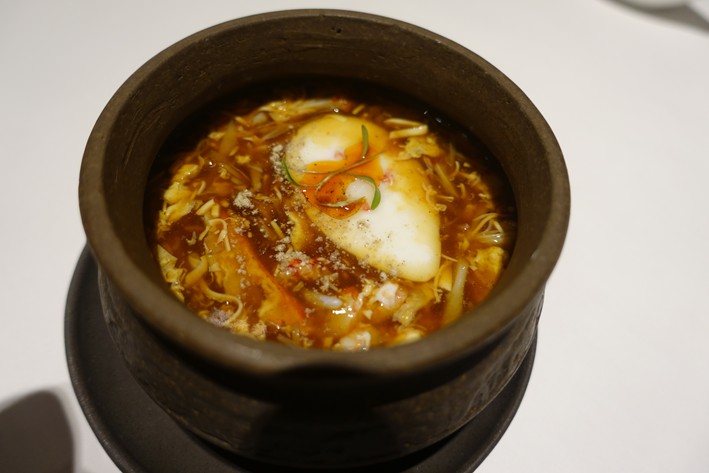
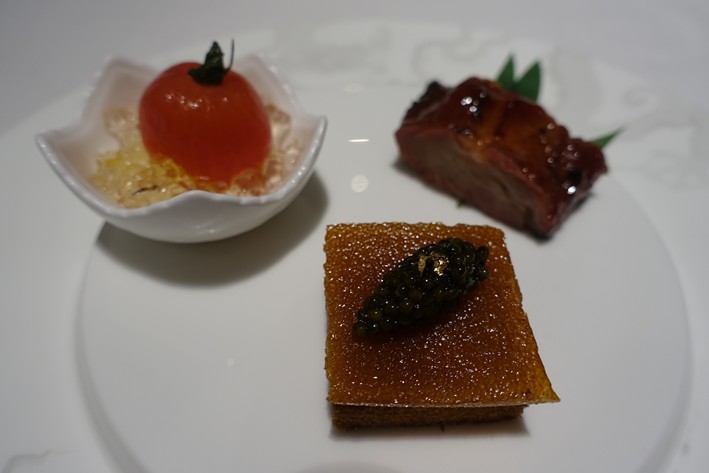
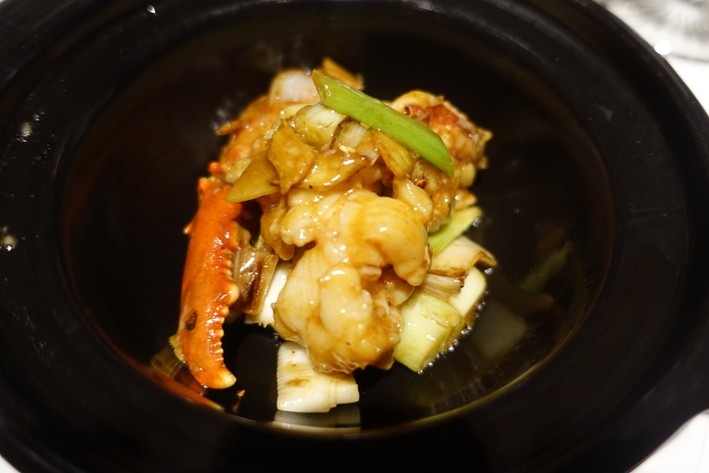
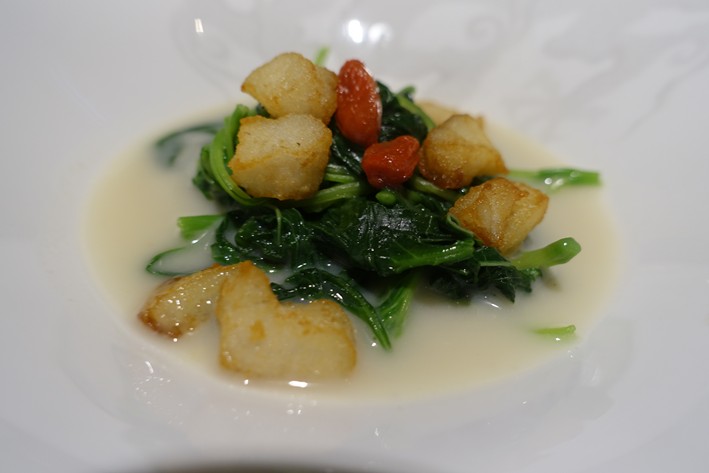
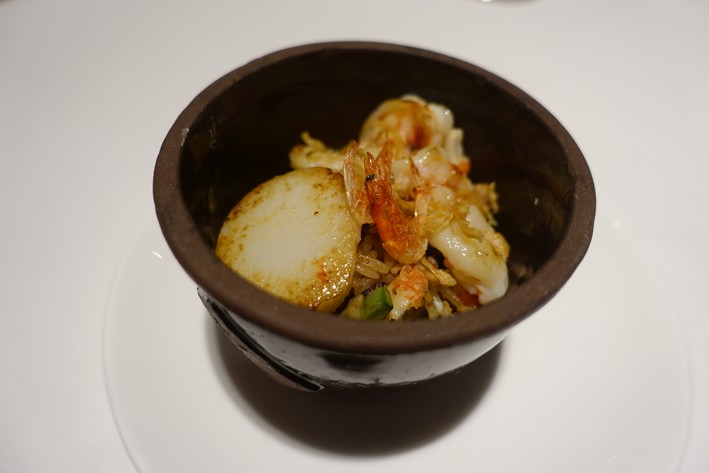
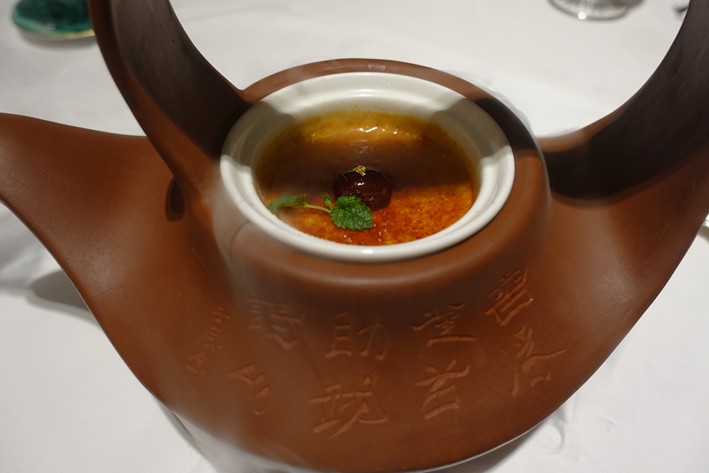
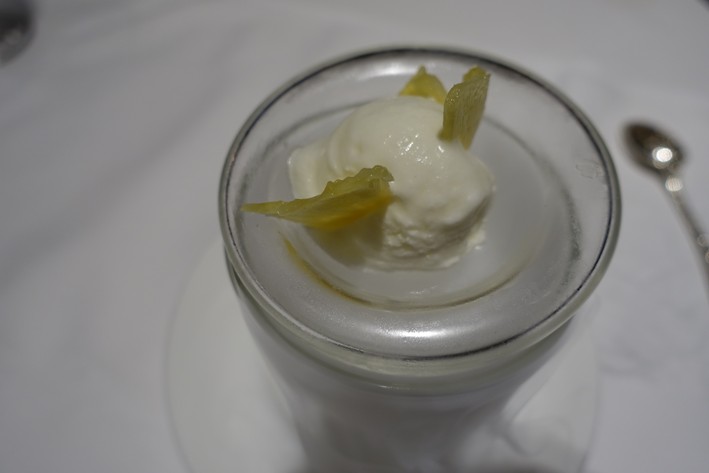
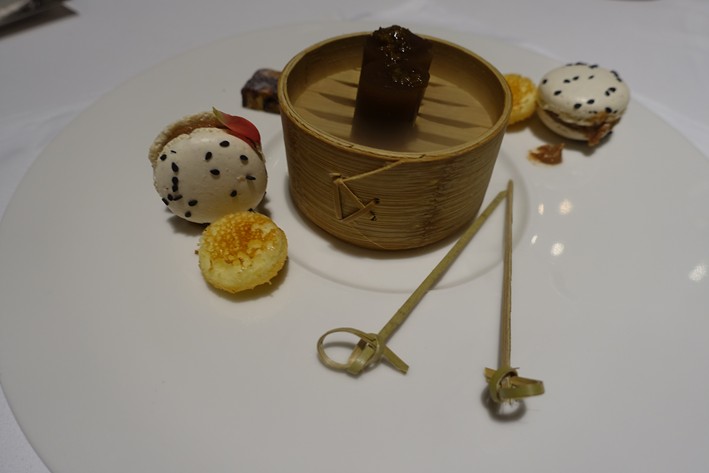
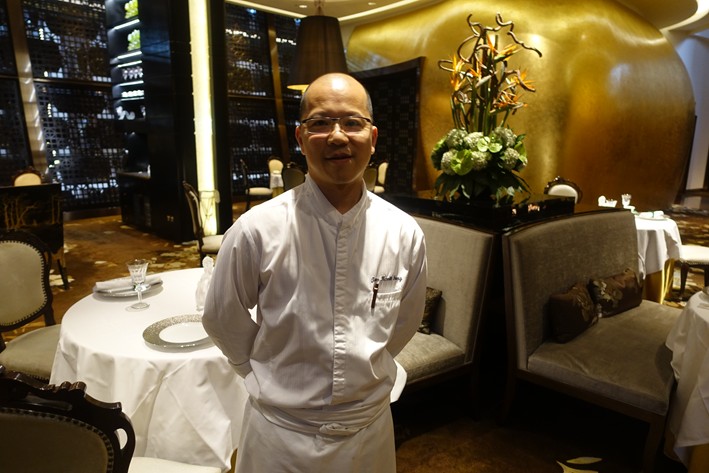

Add a comment
Thank you for submitting your comment, this will be checked and added to the website very soon.
User comments